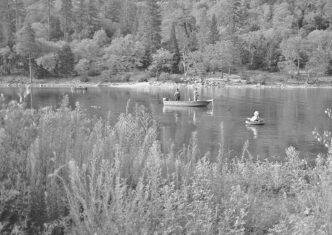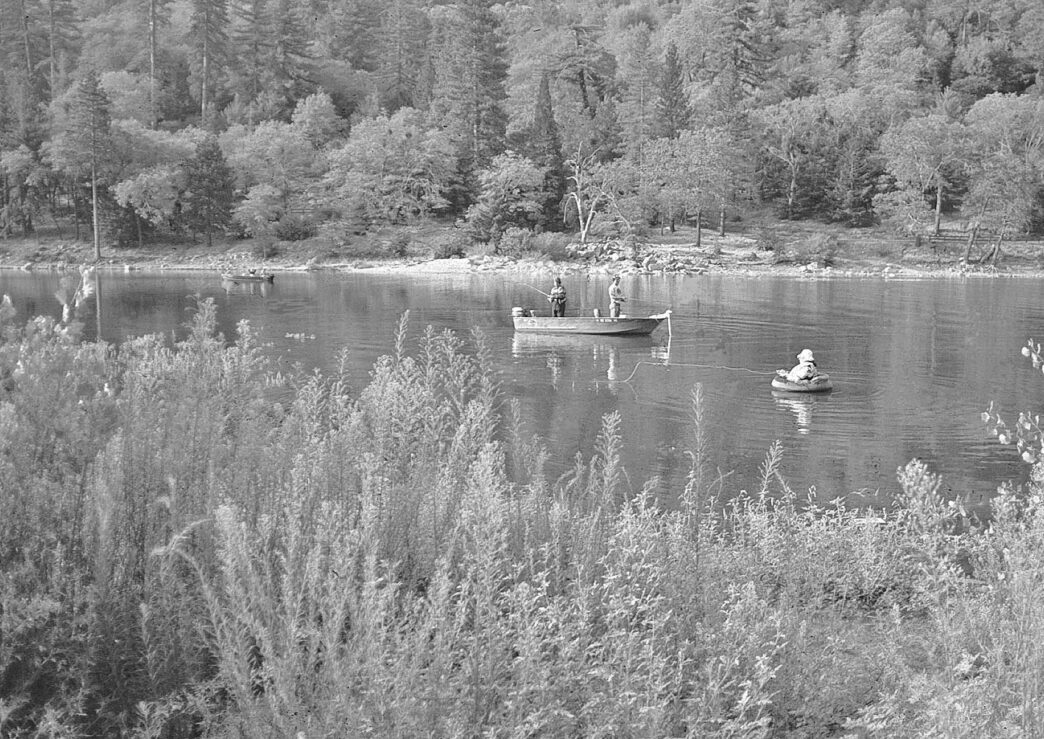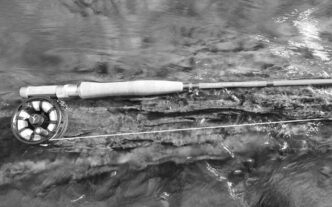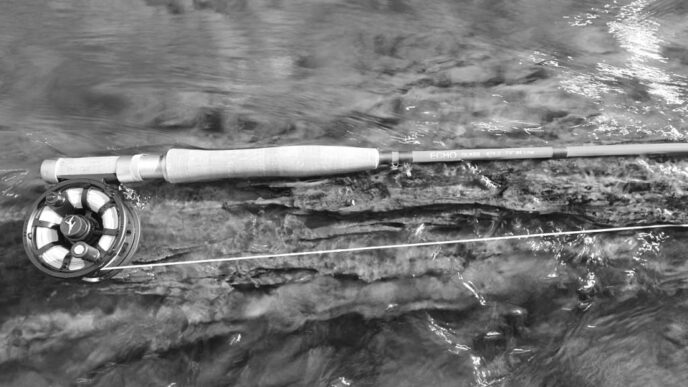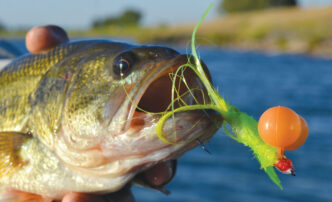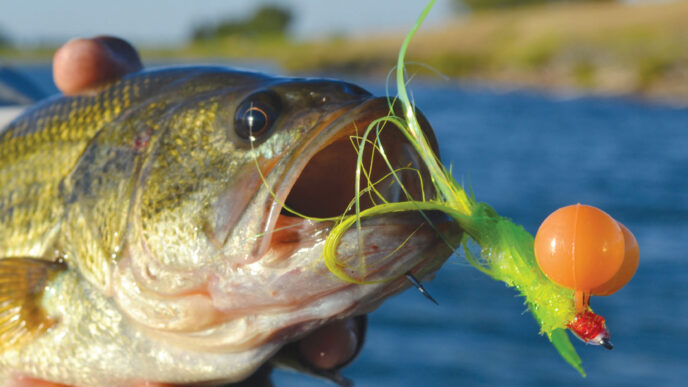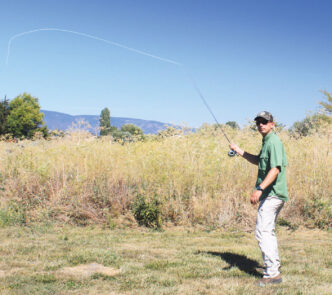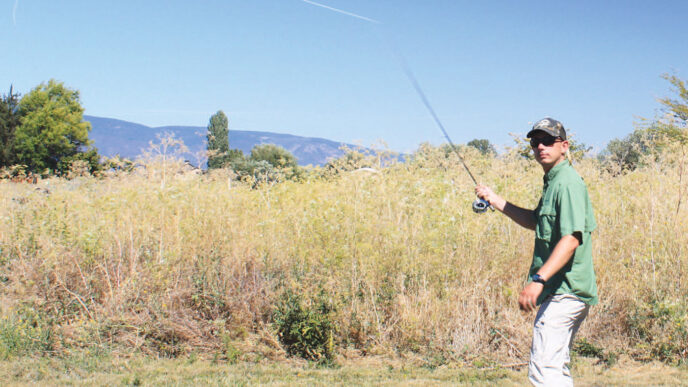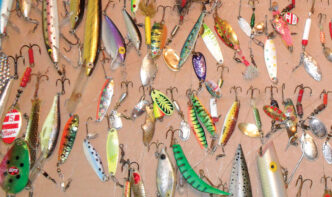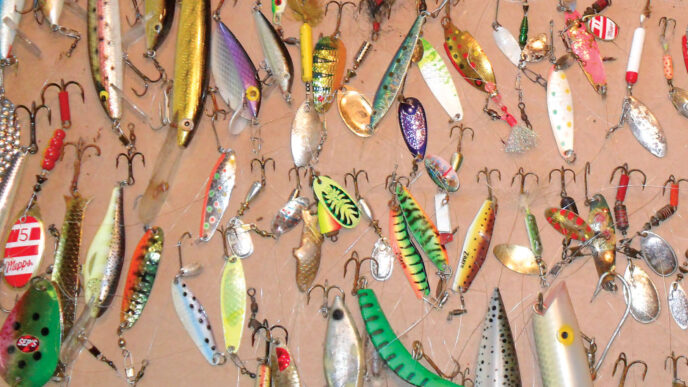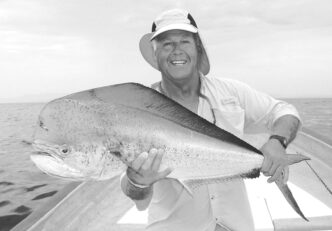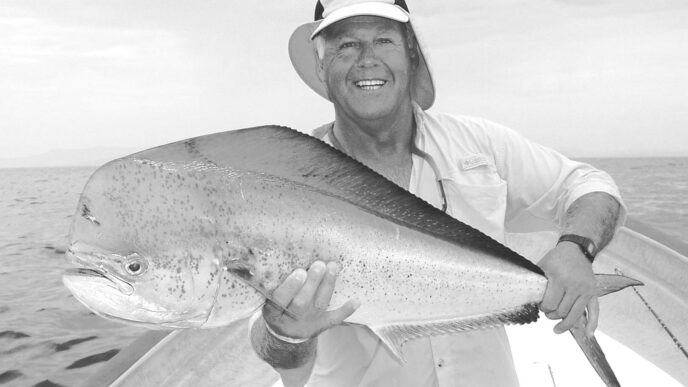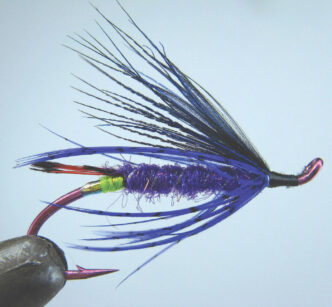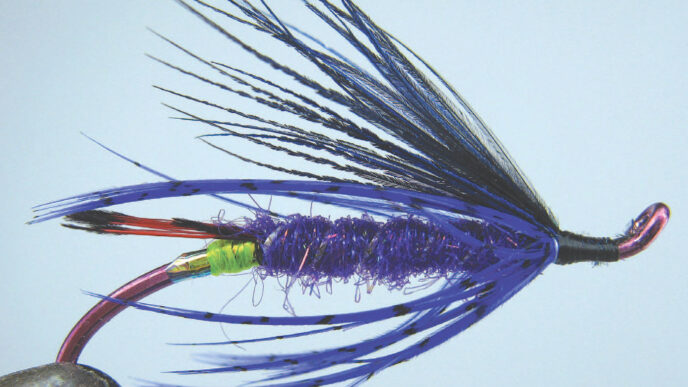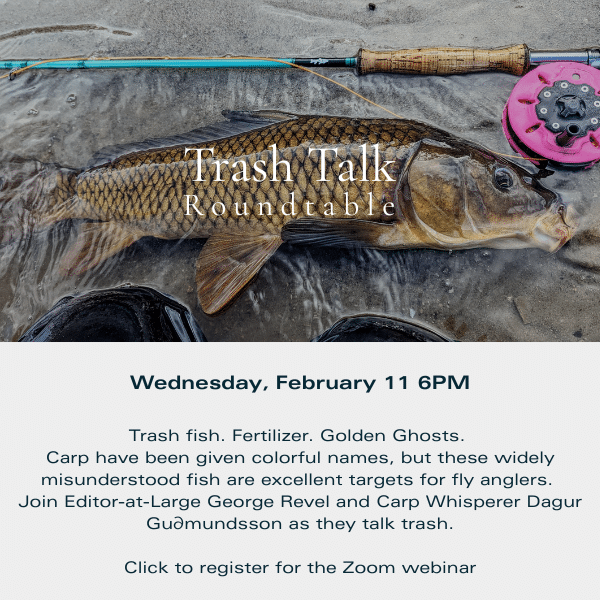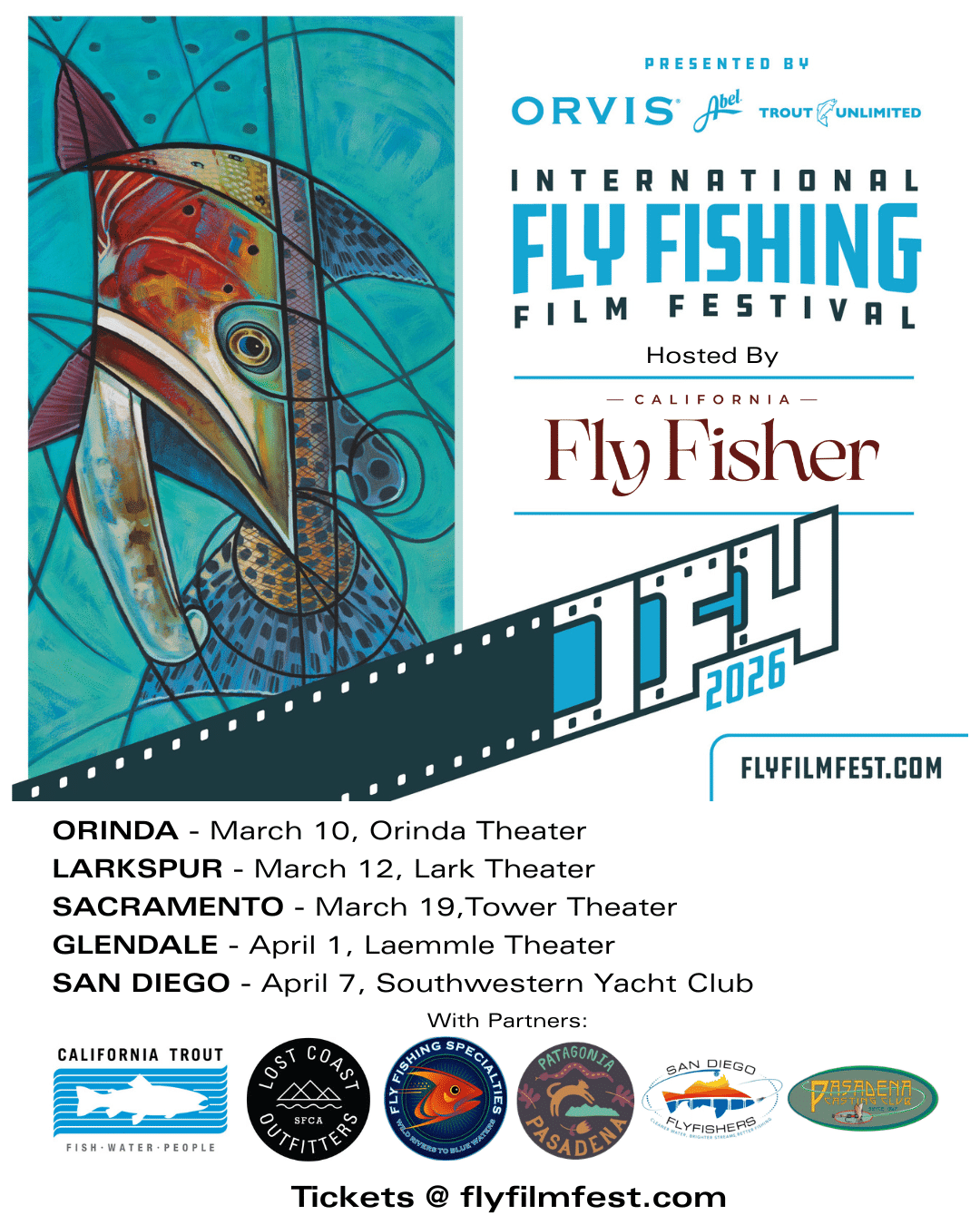As a group, fly fishers are reasonably polite when plying their sport on streams. Most, if not all, guides or boat operators will give you plenty of room to fish on moving water. If you are floating a big Western river with a guide and encounter another boat doing the same thing, like as not, your guide will defer to the other guide if he was there first, or the other guide will defer to your guy when the reverse is true. Courtesy on a stream is practiced by many anglers, and the smaller the stream, the more courtesy seems to flow from one angler to another. It’s even something that gets talked about at fly-club meetings.
This is not necessarily true in the world of bass angling. Many bass anglers, at least the majority of those who’ve spent the big bucks to obtain a state-of-the-art bass boat, are highly competitive. Having participated in a few local bass tournaments in the past, I know it’s normally push and shove for the best spots, and the guy with the biggest engine usually is the winner. He can rocket away from the launch ramp and reach the best spot long before you can.
I distinctly remember the time, early in my career as an outdoor writer, when I jumped at a chance to ride with a local bass angler in a Saturday tournament at Silverwood Lake. We met at the launch ramp while the sun was still behind the eastern hills. After introductions and the stowing of gear, he started his boat’s massive outboard. The damn thing sounded not unlike a fuel funny car, and it certainly had the throttle response you associate with one. The slightest application of throttle made the boat jump up on plane in less then an eye blink, like a surprised bucking horse that didn’t know what was about to happen when the gate opened.
We circled around at something like an idle for several minutes, waiting for the rest of the competitors to get their boats in the water. I was taking pictures and was about as shocked as that bucking horse when my host slammed the throttle forward and we leapt out of the water, still well inside the five-mile-an-hour speed-limit area. That’s when I found out I could clench my rear end to hold on tight to a leather boat seat.
Those of you who haven’t fished Silverwood probably don’t know the layout. The marina is at one end of a long and fairly narrow strait that aims north toward the dam. There are a couple of big coves about halfway out, and our boat was headed to the one on the right (east) side of the strait. I was holding on with both hands. I’d lost my hat and had seen the speedometer sweep through 75 miles an hour before we cleared the speed-limit-area buoy, and we were already behind at least two other boats.
We reached the cove quickly, and as we neared a bunch of brush on a small point, my host cut the engine. While the bass boat was still sailing along at something over 60 miles an hour, he got out of his seat and flipped the electric trolling motor into position, grabbed one of several baitcasting rods strapped to the deck, and made a couple of rapid casts.
I was still trying to decide what lure I was going to fish when he abruptly stopped fishing (everything this guy did was abrupt), yanked the electric motor up, and started the big engine. We were off again. This time, we went flat out around the corner of the main channel and headed to the northeast end, where he repeated the performance. At least I got one cast in that time.
My host did this all morning long, until about noon, close to the end of the tournament, when we sliced across the wake of another boat. When we slammed into the wake, the electric trolling motor was ripped off of the deck and landed in my lap. I didn’t get hurt, just surprised when I thought I was beyond surprise.
That put an end to the fishing, and we headed in. I found out later that this guy had hopped up the big two-stroke engine to the tune of $11,000 in high-performance parts and modifications and that this kind of modification is common among serious competitors.
We hadn’t caught anything except curses from other competitors as we lunged into their fishing spots, fired off a couple of casts, then sped away. My bass guy hurled curses right back. It was, overall, the worst display of manners I had ever seen at a competitive event. I was extremely happy to get away in one piece.
I should say that I know a lot of bass anglers who are polite and soft-spoken, both on and off the water. I have noticed, however, that most of these bass enthusiasts don’t fish tournaments. It isn’t bass fishing that is the problem, it is the competition and the money that circulates around these events that makes ordinary people behave like total snots.
Fly fishing for bass is a heckuva lot of fun, and you do not have to emulate those tournament guys to catch a few bass and have a fine time. (I’ve not fished in any of the competitive events becoming popular for fly fishers and have no opinion about them.) Unfortunately, behavior like what this bass pro exhibited is not rare on lakes, and the bad actors don’t have to be bass anglers, either. I’ve seen panfish and catfish anglers push their way into somebody else’s fishing spot and crowd out the guy who got there first.
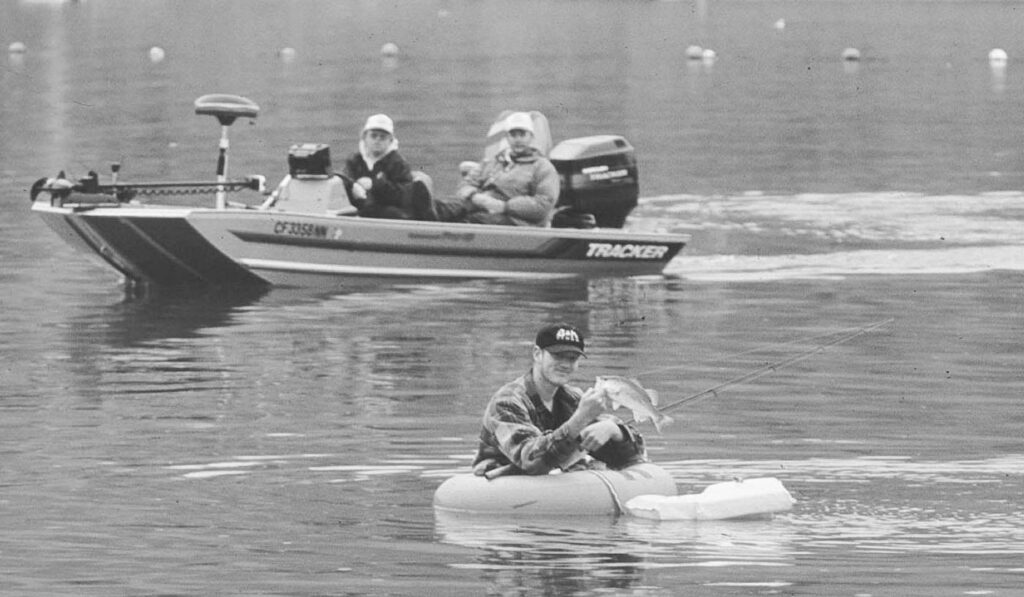
This behavior is one of the reasons I think that most of us would rather fish a small bass pond than a big lake. It’s not that the fishing is better, although it certainly could be, but that the overall experience is usually much more enjoyable. If you fish on a lake or pond where boat speed limits are strictly enforced — or better yet, boats are not allowed — you’ll have a much more peaceful time of it.
Good manners on the water for fly anglers should come as naturally as casting a fly for bass. The first rule is: don’t be in a rush. Don’t let that “Gotta get there first at any cost” thing become a habit. One nice aspect about fishing from a float tube or pontoon boat is that it’s hard to be in much of a rush, even if you are inclined in that direction.
The second rule is: don’t crowd other anglers, be they fly fishers or not. My standard is simple: don’t get nearer than you figure the other guy can cast. You might be casting 30 feet or less with a fly rod and a bass bug, while the guy fishing from the shore with a spinning rod may be casting 100 feet or more. Stay out of his reach. A shore-based angler with a long spinning rod fishing for striped bass can easily cast about twice as far is you would believe, so stay out of the way. You don’t want to be hit by a heavy wooden plug with three giant treble hooks dangling from it.
If you are in a powerboat on a large body of water, resist the urge to zoom in and out of coves. That’s the third rule of stillwater angling etiquette. Nothing irritates shoreline anglers and float tubers so much as the waves kicked up in the wake of your high-speed arrival or departure. I can remember being picked up in my float tube and deposited in some brush that I was trying to fish by the wake of a big bass boat that came charging into a small cove on Lake Hodges a few years ago. It took me several minutes to free myself and my tube from the brush.
It’s much better to use your electric trolling motor to ease into a cove, even a substantial one, than go booming in with the gas engine running at full throttle. It’s easier on other anglers who may be fishing there, and it doesn’t spook the fish that you hope to catch. If your boat doesn’t have an electric trolling motor, you should idle your way in as slowly as your boat will run.
I’d also like to make a plea for a little less noise from radios and CD players. Lately, I’ve noticed that a lot of lake users don’t seem to be able to enjoy themselves unless there’s loud music blasting out of their boat. This seems to be more of a thing for water skiers and wakeboarders than for anglers, but even among them, I’ve noticed an increase in noise.
One thing that leads to bad behavior more often than not is consuming alcohol in a boat. Boats don’t stop suddenly, and an operator who has consumed his or her fair share of alcohol may do something stupid at any moment, resulting in damaged boats and injured people. The fact is, you could easily kill somebody if you drink and drive a boat.
Most of this is simple politeness. If you still open doors for others, you probably didn’t need to read this. If not, and you make a habit of brushing other people aside, you probably don’t fly fish anyhow. Fly anglers are, as a rule, much more mannerly than most other folk.



